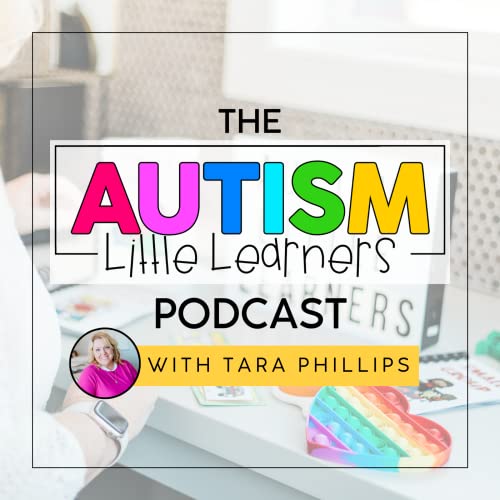Welcome back to our special Back to School series, where we're revisiting some of the most popular and impactful episodes to help you gear up for the new school year. These episodes have resonated with so many educators and parents, and we're excited to share them with you again.
The conversation around hand-over-hand prompting has been gaining traction, with many questioning its impact on bodily autonomy and neurodiversity affirmation. In this episode, I am joined by occupational therapist Dr. Diamond Rashad, who brings valuable insights into this important topic. Her expertise and clear articulation make this episode a must-listen for anyone working with young autistic children. We'll dive into the nuances of physical prompting and explore alternative strategies that honor each child's autonomy.
Topics Discussed:
-
Bodily autonomy and agency
-
Hand-over-hand prompting
-
Alternatives to hand-over-hand prompting
-
Asking for consent
-
What to do when kids aren’t initiating
Links:
Website: www.adimeinot.com
Instagram: www.instagram.com/adimeofot
Freebie (discount code: littlepod) :
https://drdime.ck.page/products/hand-over-hand-tip-sheet?promo=LITTLEPOD
Bio:
Dr. Diamond Rashad (she/her), is a neurodivergent pediatric occupational therapist, disability advocate, and doula who resides in Georgia. She has worked as an occupational therapist for eight years and has experience working from a trauma-informed lens with children, adolescents, and young adults with differences in sensory integration, executive function, feeding & mealtime participation, and supporting Autistic clients and their families. She is the founder of Emira’s Mamas & "A Dime of OT"; she is passionate about supporting birthing parents from pregnancy to postpartum, diversity and inclusion in allied health settings, social-emotional support & co-regulation, and advocacy for culturally responsive, equitable care.
Other Links You May Be Interested In:
-
Autism Little Learners on Instagram
-
Autism Little Learners on Facebook
You can also join my free Visual Supports Facebook Group to “hang out” with like-minded educators and parents who want to take action and implement visuals at home or at school.
Be sure to subscribe to The Autism Little Learners Podcast so you don’t miss future episodes. Plus, leave a rating & review on iTunes….this will help other educators and parents find this podcast!
CLICK HERE to leave a review on iTunes, then scroll down to “ratings and reviews” and click “write a review”. THANK YOU!
 14 m
14 m 14 m
14 m 44 m
44 m 1 h y 27 m
1 h y 27 m 41 m
41 m Aug 13 202419 m
Aug 13 202419 m 17 m
17 m 20 m
20 m